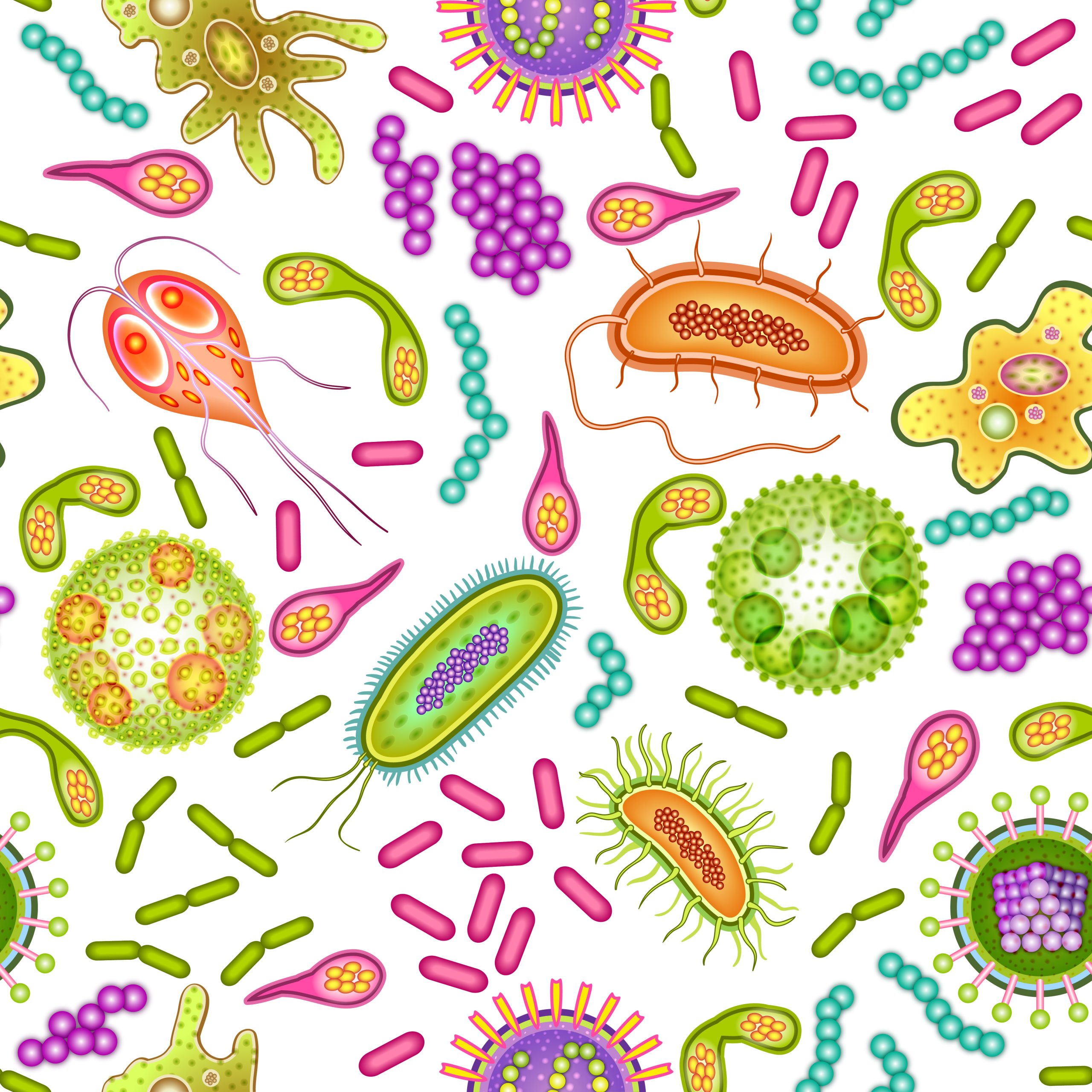

UT Southwestern Medical Center researchers have figured out how the beneficial gut microbiome can leave the colon, find their way to lymph nodes and cancerous tumors in other parts of the body, and increase the efficiency of some immunotherapy medications. The results, which were reported in Science Immunology, explain why antibiotics can lessen the effectiveness of immunotherapies and may pave the way for brand-new cancer treatments.
“Scientists have been stumped as to how bacteria inside your gut can have an impact on cancer in your lungs, breasts, or skin,” said Andrew Y. Koh, M.D., Associate Professor of Pediatrics, Microbiology, and in the Harold C. Simmons Comprehensive Cancer Center at UT Southwestern. “Now we understand that mechanism much better and, in the future, hope to use this knowledge to better fight cancer.”
The composition of the gut microbiome—the bacteria present inside the digestive tract—and the efficacy of cancer therapies that target the immune system, such as pembrolizumab (Keytruda) and ipilimumab, have been linked in prior research, including a study performed by Dr. Koh at UT Southwestern (Yervoy). Yet, investigations pointing to various helpful bacteria have led to differing conclusions concerning the appropriate balance of microorganisms to enhance therapy.
Dr. Koh and colleagues examined how the medications, known as immune checkpoint inhibitors, influenced the transit of gut microorganisms through the body using mice with melanoma tumors. They discovered that immune checkpoint inhibitors, which increase the immune system’s activity against malignancies, also promote digestive system inflammation, which results in the remodeling of lymph nodes in the stomach.
The researchers discovered that because of these modifications, germs can exit the intestines and go to lymph nodes close to the tumor as well as the tumor itself. In this instance, the bacteria cause a group of immune cells to kill tumor cells.
“Immune checkpoint inhibitors work by releasing the brakes on the immune system to target cancer,” said Dr. Koh, who is also Director of the Cellular and ImmunoTherapeutics Program at UTSW and Children’s Health. “What we think is that these microorganisms and the immune cells they’re activating are essentially pressing on the accelerator of the immune system at the same time.”
The findings suggest that a course of antibiotics, which can eliminate most gut microbiome, is detrimental to immune checkpoint inhibitors because the bacteria can no longer play this role of immune accelerant. It also helps explain why researchers have found many types of bacteria in patient microbiomes that seem to be beneficial for treatment.
“As long as a subset of beneficial bacteria can translocate from the gut to the lymph node or tumor, it may not matter exactly which bacteria it is,” said Dr. Koh.
Dr. Koh’s team is now working toward the development of bacterial-based treatments to boost the efficacy of immune checkpoint inhibitors.
more recommended stories
 Precision Oncology with Personalized Cancer Drug Therapy
Precision Oncology with Personalized Cancer Drug TherapyKey Takeaways UC San Diego’s I-PREDICT.
 Iron Deficiency vs Iron Overload in Parkinson’s Disease
Iron Deficiency vs Iron Overload in Parkinson’s DiseaseKey Takeaways (Quick Summary for HCPs).
 Can Ketogenic Diets Help PCOS? Meta-Analysis Insights
Can Ketogenic Diets Help PCOS? Meta-Analysis InsightsKey Takeaways (Quick Summary) A Clinical.
 Silica Nanomatrix Boosts Dendritic Cell Cancer Therapy
Silica Nanomatrix Boosts Dendritic Cell Cancer TherapyKey Points Summary Researchers developed a.
 Vagus Nerve and Cardiac Aging: New Heart Study
Vagus Nerve and Cardiac Aging: New Heart StudyKey Takeaways for Healthcare Professionals Preserving.
 Cognitive Distraction From Conversation While Driving
Cognitive Distraction From Conversation While DrivingKey Takeaways (Quick Summary) Talking, not.
 Fat-Regulating Enzyme Offers New Target for Obesity
Fat-Regulating Enzyme Offers New Target for ObesityKey Highlights (Quick Summary) Researchers identified.
 Spatial Computing Explains How Brain Organizes Cognition
Spatial Computing Explains How Brain Organizes CognitionKey Takeaways (Quick Summary) MIT researchers.
 Gestational Diabetes Risk Identified by Blood Metabolites
Gestational Diabetes Risk Identified by Blood MetabolitesKey Takeaways (Quick Summary for Clinicians).
 Phage Therapy Study Reveals RNA-Based Infection Control
Phage Therapy Study Reveals RNA-Based Infection ControlKey Takeaways (Quick Summary) Researchers uncovered.

Leave a Comment